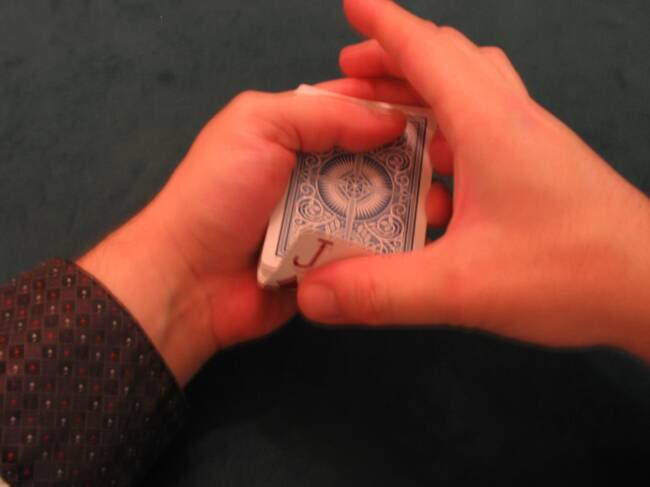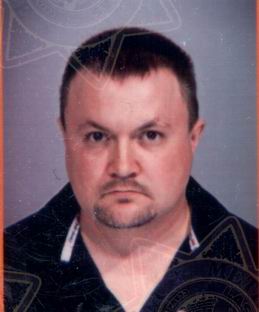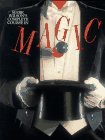Part Five : Percentage Moves and Some Final Thoughts
In the first section, we covered what are known as "soft moves" where the cheater imitates common mistakes in an attempt to circumvent the rules thus gaining an edge on the game. The rest of what was covered would basically fall under "hard moves". That is to say, the cheater employs sleight of hand techniques or gaffed equipment in order to obtain a near certain win. That brings us to "percentage moves". Percentage moves do not guarantee victory, they only increase the chances of winning for the cheater. A cheat that frequently uses percentage moves will win a higher percentage of games than he would playing "straight', but with no immediate guarantees.
 | ||||||
A. Percentage Moves
1. Stealing the Deal - Stealing the deal is legal in the majority of euchre circles but never-the-less it is a percentage move. The dealer naturally has a mathematical edge over the rest of the players because; a.) he is the last to act on the opening trick, b.) he automatically gets a trump card if the turn-up becomes trump, c.) perhaps most importantly, he gets to discard a loser when picking up the up-turned card, in effect giving him the ability to choose the best five cards out of six. Therefore, if a team gets to deal more often than another, the mathematical edge will become unbalanced in their favor. As with all percentage moves however, this edge does not guarantee a win. The right cards still have to be there. Some partnerships take great pride in their ability to steal the deal, especially since it is considered "legal" cheating. They will often push the cards to their partner after a hand insinuating their turn to deal. Strategy discussions about the previous hand or falsely contrived arguments are useful distractions while the "wrong" dealer deals. They should deal rather quickly to avoid being caught before a card is turned up, but not so fast that it brings attention to what they are doing.
2. Dealing 6 - It is simple for a dealer to deal his partner six cards intentionally. He simply deals two batches of three cards and is careful to keep them together, not getting too much air on the way. He then fakes counting the kitty and keeps the cards squared up in a manner that does not reveal the fact that there are only three cards in it. The tricky part falls on his partner's shoulders. He must hold his cards in a way that does not expose the fact that he has six of them and then eliminate one without getting caught. As far as holding the cards, it is completely legitimate for a player to hold his cards in his left hand and shield them with the right while looking at them. Many players do this to prevent someone from peeking or even watching the way they sort the cards (players that are used to watching someone sort their cards can often tell very accurately what is in their hand). When he is done looking at his cards, they are squared up in his fingers face down. There are many ways to get rid of the sixth card. Some players palm it (this takes considerable practice) and push it in with the other cards after the hand. Some players attempt to play two cards tight together (these guys get caught quite often though). Others simply drop one in their lap (or floor) and sneak it back in whenever they can. A better move though is to lay the deck wielding left hand over the edge of a trick that has already been taken while sliding the sixth card underneath it all (hand and trick) with the right thumb. When this little maneuver is practiced, it becomes close to impossible to catch.
3. Picking Double - In this case, the dealer completes an honest deal, spreads the kitty (as though to count four cards) and then pinches the top two cards together and flips them up on top of the other two. When he sets them down on the table, he must leave the top two cards slightly offset to the right so as to pick them up together easily. After looking at his hand (assuming that he doesn't get ordered up, in which case it makes no difference) if he has anything at all in his hand that goes with the top card, he can pick both cards up together, select 5 cards out of the seven in his hand and carefully discard the other two as though only one card. This move is risky and takes a moderate amount of practice but can be quickly called an "accident" if discovered.
4. Bottom Card Peek - After a dealer deals an honest hand, he counts the four cards in the kitty, slides the top three forward slightly, bends the bottom card up with his right thumb very quickly and sneaks a peek at the bottom card before turning up the top one and setting them down. Obtaining knowledge of the bottom card in the kitty can be much more advantageous than one might first think.

Example of a bottom card peek technique
1. Euchre is a game where paying attention is vital. Always keep track of where the deal is.
2. Be aware of the percentage moves above and look for peculiarities in the deal or cards that may be "stuck" together.
B. Some Final Thoughts
People who regularly cheat at any game are usually very good players to begin with and can usually win without cheating. Many of the moves that I have described, especially the "hard moves" are rarely attempted more than once in an evening's play and only when the cheater feels sure that he can perform one without being caught.
A good cheater is also an exceptional actor. A player that appears drunk, stupid or just very new at the game is actually the one that you might want to pay special attention to.
Cheaters often spend hours practicing in front of a mirror dealing straight and then try to make the cheating moves imitate the honest ones as much as possible.
Just like a magician, the cheater must try to use misdirection to make the opponents focus on the wrong things during a game. Distraction efforts of all sorts are usually employed to create a diversion from what is really going on.
If you remember anything from these pages at all, remember this; opponents that appear to be paying close attention to the game (even if they fake it) will probably stand a much better chance for a fair game against a cheater than those who don't. Experienced cheats will take note and save the crooked maneuvers for less attentive prey!

Special thanks to Natty Bumppo, Julia "Snarge" Figueroa (wherever you are), and the good people of the Lockport, NY Euchre League.
Also, perhaps most importantly, (links to) my favorite references;
"The Columbus Book of Euchre" by: Natty Bumppo
"Gambling Scams" by: Darwin Ortiz
"Mark Wilson's Complete Course in Magic" by: Mark Wilson

Harvey Lapp
 | ||||

By the way, here is a definition of euchre that I cut out of Webster's New Collegiate Dictionary (1974) ;
I also noticed that "American Slang" 2nd edition - 1998 Quill wrote;
" Euchre v by 1855 To outwit, esp by cheating = SCAM "
...rather interesting, don't you think? -Harvey Lapp


